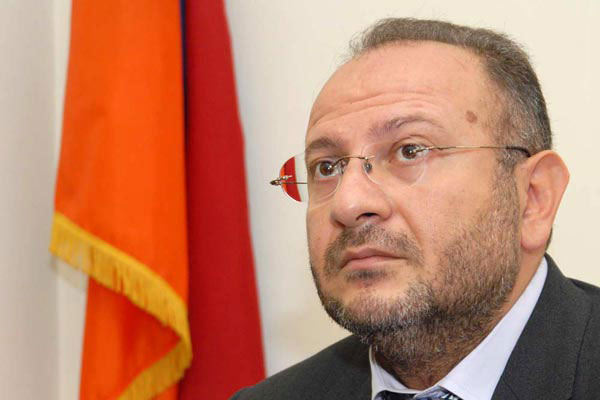Georgian authorities do not give any explanation on banning Member of World Scout Committee Bagrat Yesayan’s entry to the neighboring country Georgia. It was a surprise for Mr. Yesayan. In an interview with “Aravot”, Bagrat Yesayan told that this year in April he, as usual, had tried to enter the Republic of Georgia but on the border, the border guards had informed him that there is a veto next on his name and he no longer is allowed to enter the neighboring country. Bagrat Yesayan who is also a statesman, an adviser to the RA Minister of Education and Science, and has tried to find out the reason of the veto through the channels of the RA Foreign Ministry and his friends in Georgia. The Georgian authorities, however, do not give an answer.
“In the past 8 years, I have visited the Republic of Georgia for 28-29 times both on personal or business affairs,” said our interlocutor. Bagrat Yesayan, opportunely, is a member of the World Scout Movement. Within the framework of this organization’s activities, a number of regional and international conferences were organized in Georgia, which Bagrat Yesayan attended, “As a member of Regional Committee of the Scout Movement and later as a member of World Committee, I have had no problem entering Georgia.” The silence of Georgian authorities for the reasons for banning his entry to this country compels our interlocutor to make guessing, “During the last year, in awareness and consent of the Georgian Scout Organization given the numerous applications from the Armenian Community in Georgia on the request to create Armenian Scout Organization in Georgia, I as a member of the World Committee started to conduct consultations with the Georgian organization.
As a result of the discussions, we came to an agreement with the Georgian organization to create an Armenian Scout organization within the Georgian Scout organization as a national minority scout organization. There is such a precedent in many countries in the world,” said our interlocutor adding that Armenian General Athletic Union and Scouts (Homenetmen) operates in 25 countries around the world.
There are countries where Homenetmen is a part of the local scouting, and there are some countries where it is not a part. “In the case of Georgia, both the Georgian organization and the Georgian Armenians as well as we as an Armenian organization as we are already in close cooperation with the Georgian organization for nearly 20 years, decided that the most effective way, also for integration, will be for the Armenian scouts be a part of the Georgian scout organization,” says our interlocutor, adding that the branch was already established in Tbilisi, even the preliminary text of the memorandum was ready with which the Armenian Scout Community applies to the Georgian scout organization to be a part of it.
Read also
Bagrat Yesayan states that what has been done is not in contrary to the Georgian laws and the logic of the World Scout Organization, “But relevant Georgian authorities, by their moves as a result of their ignorance put the reputation of the Georgian Scout organization and the reputation of the Georgian country under attack because it is absurd to disallow the head of 50 million prestigious international organization to enter Georgia.” Bagrat Yesayan is surprised how Georgia walking by the path of the European integration allows such a behavior.
To the question of he has no doubt that this ban may be due to his political activities, he replied, “I am confident that there are ARF members among hundreds of thousands of Armenians that visit Georgia every year. I have information that one of my friends who is also a Dashnak is also banned but this man was simply engaged in business and was not actively involved in political or social activities. This man was just busy with buying and selling cars. He has tried three times and all three times he was banned from entering Georgia.” In the meantime, the members of the ARF faction incidentally visited Georgia during which they had meetings with the members of ruling and opposition parliamentary factions members of Georgia, and all of them had expressed willingness to cooperate with ARF.
“In other words, it is not the matter of ARF here. A silly situation is created. They do not say anything to understand, let’s say, maybe I have done something illegal there, or the reason for my banning is my social, political affiliation and activities,” says our interlocutor. In Georgia, the existence of the so-called “black lists” is not new. Currently, the access of more than a dozen Armenians to Georgia is banned. To our question of whether the RA Foreign Ministry should be more demanding, Bagrat Yesayan replied, “Naturally, it is a matter of rating of the country, and in the case of banning the access of its citizens, the country must inquire what the reason is. If there is an Armenian “black list”, and the availability of such a “black list” surely exists, respective Georgian services for whatever reasons or because of painful feelings have banned people’s access to their country which I assure you creates huge difficulties practically: you are unable to attend meetings, official visits and conduct initiatives of international organizations ex officio which you are obligated to do it.”
Our interlocutor intends also to study the possibility of disputing this issue as a citizen of the EU member country at the European instances as he is sure therewith his business reputation has suffered too.
Nelly GRIGORYAN





















































